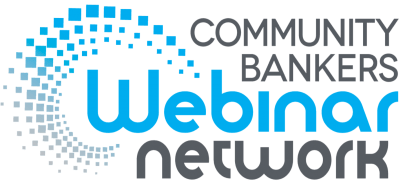
Understanding the Requirements for Escrow and Impound Accounts
Understanding the Requirements for Escrow and Impound Accounts
An escrow or impound account is a financial account set up
by your mortgage lender to pay certain property-related expenses, like taxes
and insurance. Including these expenses in your monthly mortgage makes it
easier to budget for large property-related bills. Many lenders require escrow
accounts, and sometimes they're even mandated by law.
Understanding Escrow and Impound Accounts:
An escrow account helps homeowners manage property-related
expenses by collecting a portion of their monthly mortgage payments. This money
is used to pay bills such as property taxes and insurance premiums. Mortgage
servicers manage these accounts and make payments on behalf of homeowners.
Escrow accounts can change yearly based on property taxes and insurance
premiums fluctuations, affecting the total monthly mortgage payment.
If a loan doesn't include an escrow account, it's crucial
for homeowners to budget for these additional costs and stay current on their
taxes and insurance payments. Failure to do so can result in fines, penalties,
tax liens, and even foreclosure. Homeowners can voluntarily request an escrow
account to help manage these expenses.
Escrow Requirements and Regulations:
Escrow requirements are addressed by several laws and
regulations, including:
- Real Estate Settlement Procedures Act (Regulation X)
- Truth in Lending Act (Regulation Z)
- Flood Disaster Protection Act (FDPA)
These regulations ensure that financial institutions thoroughly
understand escrow requirements to maintain compliance.
Escrow for Higher-Priced Mortgage Loans:
The Consumer Financial Protection Bureau (CFPB) issued a
final rule amending Regulation Z to implement a requirement of the Economic
Growth, Regulatory Relief, and Consumer Protection Act (EGRRCPA). This rule
exempts certain insured depository institutions and insured credit unions from
establishing escrow accounts for specific higher-priced mortgage loans (HPMLs).
Higher-priced mortgage loans are consumer credit
transactions secured by the borrower's principal dwelling and have an annual
percentage rate above the Average Prime Offer Rate (APOR). Escrow accounts are
required for all first-lien HPMLs, but borrowers can request to cancel escrows
after five years, provided certain conditions are met.
Exceptions to the TILA Escrow Rule:
Escrow accounts do not need to be established for the
following transactions:
- Transactions secured by shares in a cooperative
- Transactions to finance the initial construction of a dwelling
- Temporary or “bridge” transactions with terms of 12 months or less
- Reverse mortgages
- Subordinate liens
- Open-end credit (such as home equity lines of credit)
- Insurance premiums the consumer purchases that the lender does not require
Small Creditor Exemption:
Small creditors that make more than half their loans to
consumers in rural or underserved areas may be exempt from establishing escrow
accounts, provided they meet specific loan volume and asset size requirements.
Escrow accounts play a crucial role in helping homeowners
manage their property-related expenses. By understanding the regulations
surrounding escrow accounts, homeowners can ensure they're adequately prepared
for these financial responsibilities and achieve escrow excellence.
Escrow Excellence: From Loan Estimate to Annual Analysis
- Properly disclosing escrow items using TRID rules
- Creating precise initial escrow account statements
- Understanding single-item and aggregate analysis differences
- Ensuring cushion limit compliance, resolving shortages
- Surpluses or deficiencies
- Conducting system testing for escrow account analysis accuracy
- Identifying requirements under RESPA, TILA, and the Flood Disaster Protection Act
- Reviewing escrow statements for necessary content
- Testing for examiner-identified escrow accounting issues
Read These Articles Next
June 7, 2023
Tess Bower
April 6, 2022
January 16, 2025
© 2026 FINANCIAL EDUCATION & DEVELOPMENT, INC






